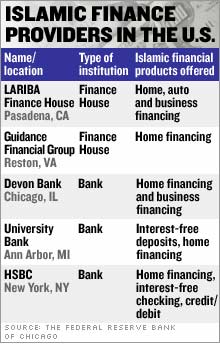islamic financing: islamic financing united states 01
Islamic financing, also known as Sharia-compliant financing, has gained popularity in the United States in recent years. This unique form of financing adheres to Islamic law principles, which prohibit the payment or receipt of interest. Instead, Islamic financing relies on profit-sharing arrangements, asset-backed transactions, and ethical investment principles.
Key Principles of Islamic Financing
Islamic financing is based on several key principles:
Mudarabah: A form of partnership where one party provides the capital, and the other party provides expertise and management.
Musharakah: A joint venture where profits and losses are shared based on predetermined ratios.
Ijara: A leasing agreement where the financier purchases an asset and leases it to the client for a fixed rental amount.
Murabaha: A cost-plus sale where the seller discloses the cost and markup of the asset to the buyer.
Islamic Financing Products in the United States
Islamic financial institutions in the United States offer a variety of Sharia-compliant products and services to meet the needs of Muslim consumers. Some of the most common products include:
Product | Description |
|---|
Murabaha | Asset purchase with deferred payment at a marked-up price. |
Ijara | Leasing agreement with the option to purchase at the end of the term. |
Musharakah | Joint venture financing with profit-sharing and risk-sharing. |
Sukuk | Islamic bonds backed by tangible assets or services. |
|
Benefits of Islamic Financing
Islamic financing offers several benefits to consumers, including:
Adherence to Islamic principles
Avoidance of interest-based transactions
Encouragement of ethical and responsible investing
Shared risk and reward in financial transactions
Support for community development and social responsibility
Islamic Financing in the U.S. Real Estate Market
Islamic financing has made significant inroads into the U.S. real estate market, providing Muslim homebuyers with Sharia-compliant alternatives to traditional mortgage products. Through Islamic home financing programs, individuals can purchase homes without violating Islamic law.
In addition to residential real estate, Islamic financing is also used for commercial real estate transactions, offering businesses an ethical and compliant way to fund property acquisitions and developments.

Challenges and Opportunities
While the demand for Islamic financing in the United States is growing, there are still challenges to overcome, such as regulatory compliance and awareness among consumers. However, the increasing interest in ethical and sustainable finance presents opportunities for Islamic financial institutions to expand their presence in the U.S. market.
Frequently Asked Questions
- What Is Islamic Financing In The Us?
Islamic financing in the US adheres to Sharia law principles, avoiding interest-based transactions.
- How Does Islamic Financing Differ From Conventional Loans?
Islamic financing prohibits interest payments, focusing on profit-sharing and asset-backed structures.
- Are Islamic Financing Options Available For Home Purchases?
Yes, Islamic financing offers home purchase solutions compliant with Sharia law.
- Is Islamic Financing Accessible To Non-muslims In The Us?
Islamic financing is available to all, promoting ethical and inclusive financial practices.
Conclusion
Islamic financing in the United States provides a unique and ethical alternative to conventional financial products. With a focus on profit-sharing, asset-backed transactions, and ethical investment practices, Islamic financing offers a Sharia-compliant way for individuals and businesses to meet their financial needs while adhering to Islamic principles.
As awareness and demand for Islamic financing continue to rise, the future looks promising for the growth and development of Sharia-compliant financial services in the United States.




.webp)

